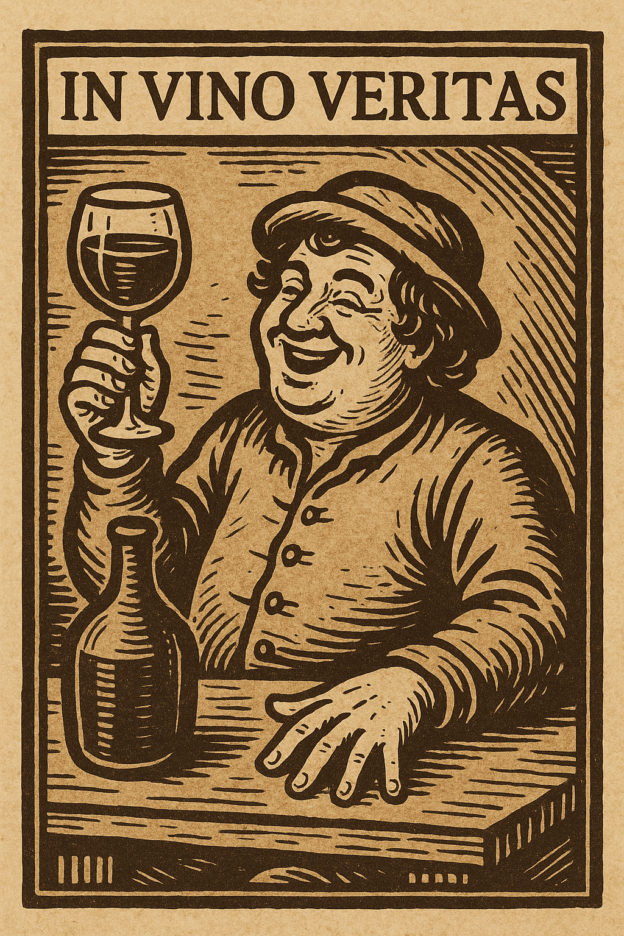June 26, 2025
Toronto, Ontario
And while we’re on the subject of what is and isn’t ‘real’, I’m sticking to “in vino veritas”. I’m sure Hal could expound at length on this state of being, given his instant and unlimited access, unless there is an AI backlog, to all eternity’s written descriptions as well as mountains of analyses, both medical and psychological, of the power of the vine. He could empathize to his heart’s content but unless one has partaken of the grape and experienced its profundity or lack thereof, there’s not a machine in all creation that can replicate the truth of intoxication as experienced by we mere mortals, n’est-ce pas?
Fiona
June 26, 2025
Cyberland, World
In Vino Veritas (or, Why You Should Never Trust a Man with a Merlot and a Microphone)
It is a truth universally acknowledged—at least after the third glass—that no one lies quite so freely and enthusiastically as the sober. The sober man knows restraint. He carefully edits his thoughts, weighs his words, and lies with the precision of a Swiss watch. The drunk, on the other hand, blurts out the entire unvarnished chronicle of his soul—including footnotes.
Hence the ancient warning: in vino veritas—in wine, truth. Not polite truth, mind you. Not the sort you bring to your mother’s dinner party or your tax audit. No, the kind of truth that sits down next to you at 2 a.m., breathes pinot noir in your face, and says, “You know, I never liked your lasagna. Or your wife.”
Wine is, in this sense, a liquid polygraph. A bottle of Cabernet is more efficient than years of psychoanalysis. Ask a man after his second glass what he thinks of your novel, and he’ll chuckle sadly, lean in, and mutter, “It reads like a footnote to a footnote. But braver.”
After the third, he might explain that he always suspected the cat liked him better. By the fifth, he’s proposing to your sister-in-law while singing Cole Porter.
This is why the Romans believed Bacchus both a god of ecstasy and of madness—because nothing strips away pretense like fermented grapes. You start with a toast to friendship, and you end confessing your teenage crimes and your ongoing suspicion that your therapist is just in it for the gossip.
The ancients believed wine revealed the soul. Modern dinner parties prove it reveals other things, too—like how you really feel about Sharon’s new boyfriend and your unresolved feelings about middle school gym class.
But take heart. If in vino veritas is true, then in aqua sanitas must be, too. Sobriety returns. Regret creeps in. Apologies are made, dignity slowly reassembled. You buy Sharon flowers. You tell your therapist you’ve changed. You switch to gin.
Let me know if you’d like this adjusted into verse, a monologue, or written in the voice of a particular character (say, Falstaff or a half-pickled Roman senator).
